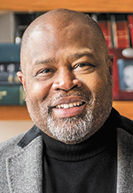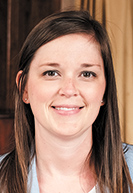Subscriber Benefit
As a subscriber you can listen to articles at work, in the car, or while you work out. Subscribe NowAs March Madness was wrapping up in Indianapolis, United States Supreme Court justices heard oral argument in a monumental case that sports law experts anticipate will forever change the landscape of college athletics — including the nation’s most beloved and profitable college basketball competition.
Background
Before the justices on March 31 was the consolidated case of National Collegiate Athletic Association v. Alston, 20-512, brought by a group of former Division I men’s and women’s college athletes who argue the Indianapolis-based NCAA’s limits restricting education-related compensation and benefits violate federal antitrust law.
Under existing rules, colleges and universities can cover student athlete’s educational expenses including tuition, fees, and room and board. Also included are payments for things such as awards for athletic participation, academic awards and study abroad.

The case first arose in May 2014, when former college football player Shawne Alston and other student athletes sued over the NCAA’s compensation rules. A district court ruled partially in favor of the athletes, agreeing that restrictions on some of the education-related benefits violated the law, but the court upheld limits on non-educational compensation.
The NCAA then appealed to the U.S. Court of Appeals for the 9th Circuit, which upheld the district court’s ruling. The U.S. Supreme Court later agreed to hear Alston — the first case of its kind to come before the high court in decades.
“This is huge, this is a big one,” said Kevin Brown, a professor of who teaches sports law among other courses at Indiana University Maurer School of Law. “This will be one heck of a year in college sports.”
Amateur or professional?
Alston is part of a bigger web being spun by college athletes who say they should be allowed to receive outside financial compensation. It brings to battle the issue of maintaining amateurism in college athletics — one of the main contentions argued by the NCAA before the justices.
But the high court seemed hostile of that position, Brown observed. Justice Brett Kavanaugh called the NCAA’s practices “disturbing,” while Justice Elena Kagan called the NCAA’s speech on amateurism “high minded.” Justice Clarence Thomas, known for being slow to speak during arguments, even stated, “It strikes me as odd that coaches’ salaries have ballooned and they are in the amateur ranks, as are the players.”
Antitrust law should be interpreted in such a way as to maximize the benefit to the consumer, Brown explained. That’s why competition is typically considered good because it ultimately leads to lower prices, greater supply, and fitting the product with the consumer demand.
“The NCAA is saying, amateurism and the fact that they play for an academic institution allows us to distinguish college sports and professional sports and therefore gives the consumer more choice,” Brown said. “The problem is, how do you prove that?”
Other legal issues that could be impacted by a ruling in the Alston case, he noted, include the concept of using a player’s name, image and likeness through endorsements, as well as Title IX concerns of ensuring that women’s collegiate sports are equally compensated.
Taking a hit
Following oral arguments, the NCAA stated that it believed it “demonstrated why, under antitrust laws, the NCAA should have ample latitude to ensure college sports are played by student-athletes and not paid professionals.
“As we argued, the lower court decision encourages judicial micromanagement, invites never-ending litigation as the NCAA seeks to improve the college athletic experience, and threatens the critical distinction between professional and college sports. We look forward to the Court’s decision,” NCAA chief legal officer Donald Remy said in a statement.
Brown, however, doesn’t think the NCAA’s amateurism argument will succeed. “The problem with this — and it was pretty clear from a number of the justices’ questions to the attorneys — is that this just looks like exploitation of the athletes,” he said.

The amateurism argument was no surprise to sports law attorney Kelleigh Fagan of Church Church Hittle + Antrim, who says the NCAA has always prided itself on that concept.
“But I think we saw with questioning of the justices and the overall public sentiment that that concept of amateurism is eroding a little bit,” Fagan said. “They are trying to preserve the touchstones of that because they believe it’s necessary or important for college sports to continue to be able to distinguish it from professional sports.”
While the justices questioned the collegiate sports giant about its reasonings for capping education-based benefits, the high court asked attorneys for Alston what the long-term plan might be for plaintiffs who bring this case.
“… Depending on the result of this case, will they then file a lawsuit to say that they should be compensated in a manner that is not tied to educational expenses?” Fagan asked. “That would be the broader iteration of these challenges, because this case is limited to expenses that are tethered to education.
“I think the writing on the wall is that if they are successful here, there will likely be a challenge of the pay-for-play concept, more broadly,” Fagan said.
A ruling in favor of the NCAA would provide the organization with some potential antitrust protection, which she thinks could slow the momentum of cases challenging NCAA rules.
“But if it’s decided against the NCAA, we will see more antitrust challenges to this collegiate model and that could really change the course of collegiate sports. I don’t know if it will happen the day after the decision will come out, but I think again you will possibly see challenges to NCAA rules and slowly eating away at this concept of amateurism where it could potentially start to look more like professional sports.”
Looking ahead
While colleges, universities, players, and the public await a summer decision from the Supreme Court, Brown says there is no question that the justices will prevent the NCAA from limiting education-related expenses.
“I think that based on the fact that seven of eight justices were critical in one way or the other of the NCAA, I don’t think they will take the NCAA’s position all the way. So what does mean that for colleges and universities, they have to make the choice. Do we start providing these educational benefits or not?”
Even if the Supreme Court tells the NCAA that it can’t limit how much it pays college athletes, Brown said it would not mean that the colleges will decide to pay them more.
“That’s why I would anticipate new conferences springing up and they will have new rules that you can pay the athletes in your particular conference. It’s not like this means completely Wild West,” he said. “It means you come up with new conferences that will have different financial packages for the athletes,” he said.
While listeners can’t always read the tea leaves based on the questions posed by the justices, Fagan said she does think the high court seemed to side with the college athletes.
“But again,” she said, “I don’t think you can read too much into the questions as how that is going to dictate the outcome.”•
Please enable JavaScript to view this content.

